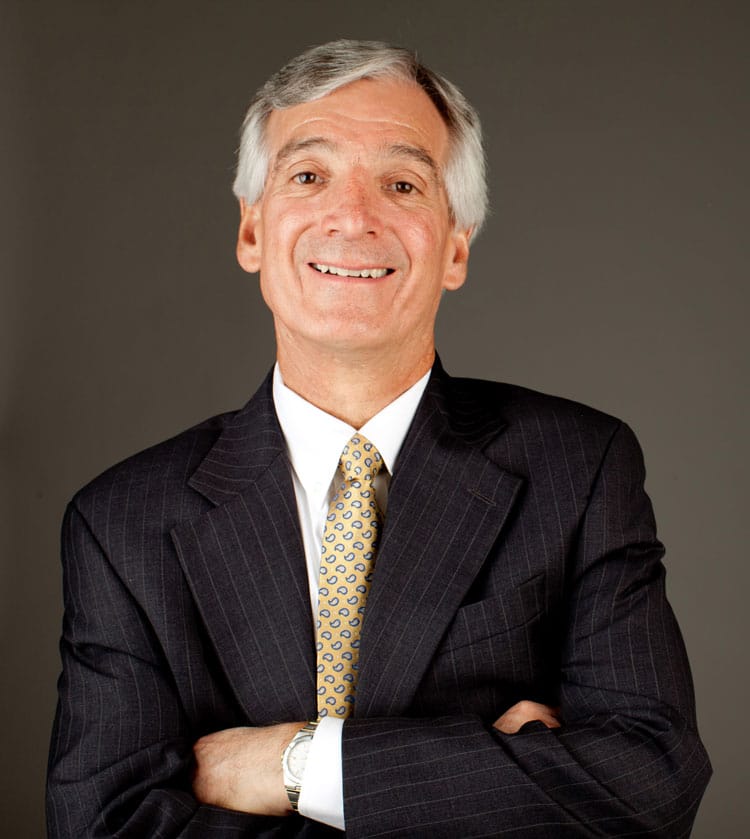Overcoming Our Biases at Work

All of us have biases, they are part of being human, We develop attitudes toward people, groups, things, places, and experiences. These attitudes become biases when we show prejudice for specific individuals or groups based on incomplete or inaccurate information. What happens is we see superficial cues like race, color, age, religion, nationality, education, economic status, or political affiliation, and then construct more complete personalities for those people. “Because he is like this, he must also be like that.” Or “because she did this, she will also do that.” Our perceptions are always incomplete and often totally inaccurate.
Sometimes we understand our biases, and other times we don’t even know they exist. Either way, they can impact our behavior, relationships, happiness, and effectiveness in our work. That’s because the biases we develop can lead to personal alienation, divisions between groups, and tension in organizations. Overcoming our tendencies to judge leads to more satisfying relationships, better productivity, and greater job satisfaction.
Overcoming our biases can seem difficult or even impossible. This five step process helps a great deal. By following each step, we can identify and release our biases, and develop better working relationships and greater civility in our organizations.
#1: Understand Our Biases
The first step in overcoming unhealthy biases is to examine what they are and where they have come from. Think about adverse attitudes you may have toward individuals or groups of people and ask yourself these questions: What information or experiences have led to this bias? How accurate is my information about this group? How is this attitude impacting my behavior at work?
Identifying our biases is a good start, but it only reveals the ones we know about. A second helpful approach is to sit down with a good friend or partner and ask these questions: “Are there people or groups you feel I have biases toward? If so, can you give me examples from my speech or behavior? How do you think I would benefit from changing this attitude?” Be open, non-defensive, and willing to honestly reflect on what you learn.
A third way to understand our biases is to complete a formal assessment. One of the more popular ones is the Harvard Implicit Association Test, which is available online for free. This evaluation assesses our attitudes toward various groups of people. Complete some of the tests, see where you stand, and review your results with your friend or partner.
#2: View the World Horizontally
Once we’ve identified our biases, you can start the process of letting them go. The first step to doing this is to stop viewing the world vertically, and start viewing it horizontally. For most of us, our egos lead us to view ourselves as being either above or below other individuals and groups. It is like we are all on a ladder, and when someone moves up a rung, another person moves down. If we view the world this way, we will always have negative attitudes toward other people and groups.
Sadly, many relationships are damaged and valuable information is lost when we hold a vertical view of life. A healthier way to view the world is to see people on a horizontal plane. This approach assumes we are all equal, we all have value, and we all have something to contribute. It doesn’t put any of us above or below anyone else. Over time, it leads to more friendships, healthier relationships, better solutions, and more civil groups and organizations.
#3: Improve Our Listening Skills
As we begin to shift our view of the world to a horizontal one, we can start to practice the next step: improving our listening skills. We learn about each other through our communication. Unfortunately, most of us are poor listeners—and we get worse with age.
An interesting study shows that 90 percent of first and second graders are able to recall what a teacher has just said. The success rate drops to 44 percent for junior high students and 25 percent for high school students. Adults don’t do much better. Following a 10-minute presentation, 50 percent of adults can’t describe what was said, and two days later, 75 percent can’t even remember the subject.
To improve our listening skills, we can put away our technology during our conversations. We can look directly at the speaker and maintain eye contact. We can watch for nonverbal cues, refrain from judging or interpreting while the speaker is talking, and ask questions to better understand what is being said.
The way we listen to other people becomes a habit that repeats itself. Changing our habits takes desire, practice, and time. Learning to truly listen can help us eliminate inaccurate judgments and biases we may have toward individuals and groups.
#4: Squelch Negative Communication
The next step is all about squelching negative communication, which is crucial if we want to squelch negativity in our lives and organizations. To understand why, think about a magician’s act. “Abracadabra” is a phrase magicians use just before revealing a magical feat. What they do next is convincing, but it isn’t real.
Although the origin of the word abracadabra is not clear, it appears to be a combination of Aramaic or Hebrew words that mean “I create as I speak.” The implication is that we create reality through our communication—and what we create may be accurate, inaccurate, or a total illusion, just like what magicians create.
Research suggests that we do create a social reality for ourselves through our conversations with people. The more we talk about something, the more it becomes real and concrete for us. So, if we talk negatively about individuals or various groups, even if we don’t have any interaction with them, our negative attitudes become stronger and more concrete. These attitudes are often inaccurate or complete illusions; it’s like we are saying “Abracadabra” before we speak. Consequently, one of the best ways to prevent and eliminate unhealthy biases is to refrain from negative conversations about other people. So try going 30 days without saying anything negative about any individuals or groups you work with, and see what happens.
#5: Engage with People Who Are Different
The final step is to make it a point to engage with people who are different from us. When our family lived in the Middle East, many of our friends and colleagues were Muslims from Saudi Arabia, Lebanon, Turkey, Kuwait, Egypt, and Syria. This new culture was very different from the one we had experienced in our homogenous hometown in the United States.
A few years later, we lived in a wonderfully diverse neighborhood in Atlanta. Our next-door neighbors were from Latin America; the ones across the street were from Pakistan; around the corner were two African-American families; and just up the street was a brilliant attorney who worked with prisoners on death row. We were members of our neighborhood HOA, we ate delicious international foods, we visited different churches, and we enjoyed many fascinating conversations.
I think it is difficult to shed our superficial judgments without being around people from different cultures, backgrounds, and beliefs. Examining our biases can change our minds, but befriending people who are different changes our hearts. Learning about other people’s experiences, challenges, dreams, and love for their families produces the greatest understanding.
To overcome our biases and build more satisfying relationships at work, we can learn about people’s faiths and places of worship. We can volunteer together at a local food bank, kitchen or homeless shelter; and befriend people from different cultures and do things together. It is easy to dislike people from a distance; it is harder to dislike people up close.
You Can Change Your Biases
In sum, judging other people is part of being human. It’s not a character defect of angry, unhappy, or uneducated people—it is something we all do. Our biases develop in much the same way that we form our own self-identity—through early messages we receive from parents, teachers, friends, the media, and our culture. The good news is, we can recognize and change our biases.
As we refrain from judging other people at work, wonderful changes occur. We are more willing to interact with those who are different from us, we give people the benefit of the doubt, we develop more productive working relationships, and we are more inclined to do good deeds for others—all of which are foundational to achieving personal happiness and civility in our organizations and communities.
Written by Michael Glauser.
Have you read?
Best Business Schools In The World For 2022.
Best Fashion Schools In The World For 2022.
Best Hospitality And Hotel Management Schools In The World For 2022.
Best Medical Schools In The World For 2022.
The World’s Best Universities For Doctor of Business Administration (DBA), 2022.
Add CEOWORLD magazine to your Google News feed.
Follow CEOWORLD magazine headlines on: Google News, LinkedIn, Twitter, and Facebook.
Copyright 2024 The CEOWORLD magazine. All rights reserved. This material (and any extract from it) must not be copied, redistributed or placed on any website, without CEOWORLD magazine' prior written consent. For media queries, please contact: info@ceoworld.biz








